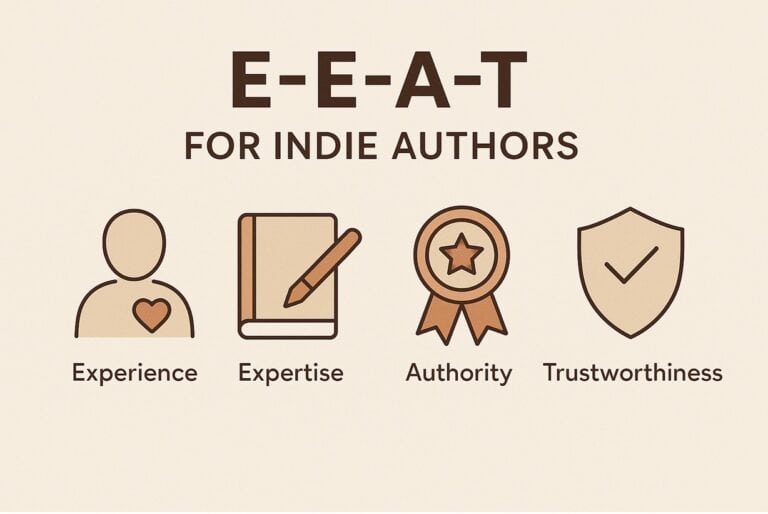The Art of Choosing Keywords for Writing Success

“Keyword research is the foundation of your online presence.” – Neil Patel
In the digital age, where words have transformed into valuable currency for online visibility, understanding the art of choosing keywords for writing success is paramount for writers, bloggers, and content creators. It’s not about flooding your content with buzzwords. It’s about pinpointing the words and phrases that resonate most with your target audience.
But how do you, as a new author, determine which keywords will elevate your content to the top of search engine results?
The answer lies in the strategic method of choosing the right keywords, zeroing in on a focus keyword, and organizing them according to user intent. Delve into the four main categories of intent, the power of long-tail keywords, and the innovative tools that can guide your selection.
This guide aims to help pave your path to keyword research, ensuring that your words not only captivate readers but also achieve the recognition they deserve in the vast digital landscape.
Let’s dive into this crucial skill of choosing keywords, which can significantly impact your visibility and readership.
Imagine this: You’ve just published your first book, filled with passion and excitement. You sit back, expecting readers to flock to your masterpiece. But instead, you hear crickets. This happened to a writer friend of mine, Sarah, who overlooked the power of keywords for writing success. Her book was hidden in the vast digital library, a story untold. A missed opportunity she now jokes about, realizing the importance of keywords the hard way.
Selecting Keywords for Writing Success
Selecting the right keywords is the foundation of any author’s online presence. These words and phrases are the bridges that connect your work to readers searching for precisely what you offer. Begin with a comprehensive list of potential keywords related to your niche.
Choosing a Focus Keyword
A focus keyword is the main term or phrase that you want your content to rank for in search engines. Choosing a focus keyword can help you optimize your content for SEO and attract relevant traffic to your website.
Of the keywords you have, you should select the one that best meets these following criteria and aligns with your content goals.
- Relevance: match the intent and topic of your content.
- Competition: not be too competitive or too broad, as it will be harder to rank for.
- Volume: have enough search demand to drive traffic to your content.
- Specificity: be specific enough to target your niche audience and differentiate your content from others.
Organizing Keywords by Intent
Set some goals about what you want to accomplish–not just with keyword research but your entire author brand. Use that to inform your keyword strategy and separate each goal by intent so you have a list of keywords for each.
Classify all keywords into four main categories of intent. When researching to discover a user’s intentions behind making a search, you can classify all keywords into these four categories of intent.
4 Main Categories of Intent
- Commercial: looking to buy something. (“buy shoes online” or “best deals on laptops”).
- Transactional: ready to make a purchase. (“buy now” or “order today”).
- Informational: looking for information. (“how to bake a cake” or “what’s the capital of France”).
- Navigational: looking for a specific website. (“Facebook login” or “YouTube homepage”).
Long-Tail Keywords
Consider using long-tail keywords, which are more specific and have less competition. For instance, if you write romance novels, instead of targeting “romance books,” opt for “historical romance novels set in the 19th century.”
Keyword Implementation
Once you’ve identified your keywords, it’s crucial to naturally integrate them into your content. Keep in mind, the keyword density should be less than 2% to avoid keyword stuffing.
Headings & Subheadings
Use keywords in your headings and subheadings. For example, if your keyword is “best fantasy books,” a subheading could be “Exploring the Best Fantasy Books of All Time.”
Tools to Help
Utilize keyword research tools such as AlsoAsked to explore questions your potential readers are asking. This can be a goldmine for finding relevant keywords and content ideas.
TIP: Take inspiration from real-life authors who excelled in keyword optimization. Observe how authors, such as Neil Gaiman, incorporated keywords seamlessly into their works.
Keyword Success Wrap-Up
Navigating the digital content world, the right keyword choice is crucial. It’s a balance of understanding and strategy. Choosing the right keywords is an art and mastering it can significantly boost your writing success.
By using the categories of intent, tapping into long-tail keywords, and using the right tools, you can make your content stand out. But it’s not just about rankings. It’s also about connecting with readers and offering them value. As you continue your writing journey, let smart keyword choices guide you to visibility and meaningful online engagement.
In this digital age, where readers’ attention is divided, keywords are your beacon. Start implementing these strategies today to ensure your writing shines in the vast digital landscape.
We hope you’ve found these keyword strategies helpful and motivating. They’re aimed at giving you tools to boost your growth as an aspiring author. Writing is a constant journey of learning and improvement. But you’re not alone on this journey. We’re excited to be with you every step of the way, providing encouragement and advice. Our goal is to offer essential knowledge and practical tips, helping you navigate the world of writing with increased confidence.
Don’t wait. Start today!
How can we help? To let us know, please fill out our contact form. Happy writing!
Step-by-Step Guide for New Authors
By following these strategies, you’ll be on your way to enhancing your writing success through effective keyword selection and implementation.
- Keyword Research: Begin by creating a list of potential keywords related to your writing niche.
- Long-Tail Keywords: Consider using long-tail keywords for specificity and reduced competition.
- Content Integration: Naturally incorporate keywords into your writing while maintaining a keyword density below 2%.
- Headings and Subheadings: Use keywords in your headings and subheadings to improve visibility.
- Keyword Tools: Explore keyword research tools like AlsoAsked.com to discover relevant keywords and content ideas.
- Learn from the Pros: Study successful authors who excel in keyword optimization.
FAQs
Q1: How many keywords should I target in my writing?
Answer: It’s best to focus on a few relevant keywords per piece of content to maintain readability.
Q2: Are long-tail keywords necessary for success?
Answer: Long-tail keywords can be highly effective in targeting specific audiences and reducing competition.
Q3: Can I use the same keywords for different pieces of writing?
Answer: Yes, you can reuse keywords, but ensure they are contextually relevant to each piece.
Q4: Should I prioritize keywords over the quality of my writing?
Answer: No, quality writing should always come first. Keywords should enhance, not detract from your content.
Q5: Are there free keyword research tools available?
Answer: Yes, tools like AlsoAsked.com offer free keyword research capabilities.
Additional Resources
4 Useful Tips To Make Keyword Rank Tracking More Efficient (searchenginejournal.com)
How to Do Keyword Research for SEO: A Beginner’s Guide (hubspot.com)
How to Organize Your Keyword Lists – Search Engine Watch


